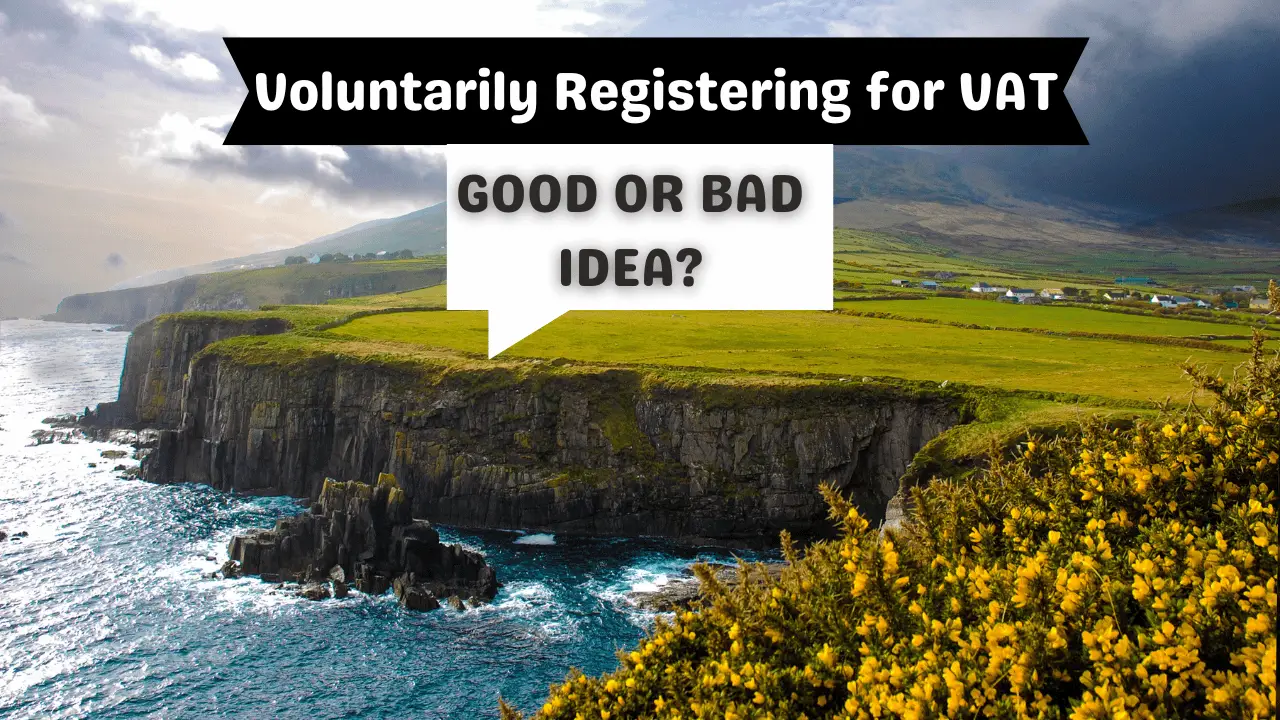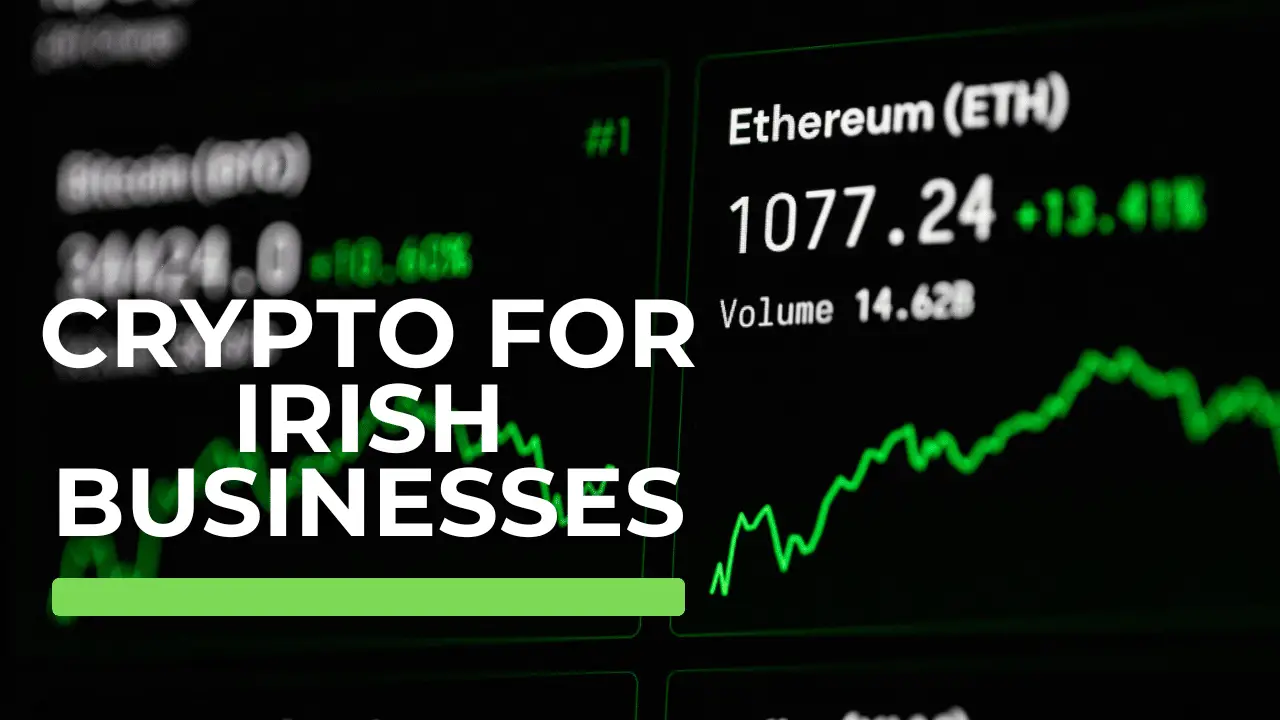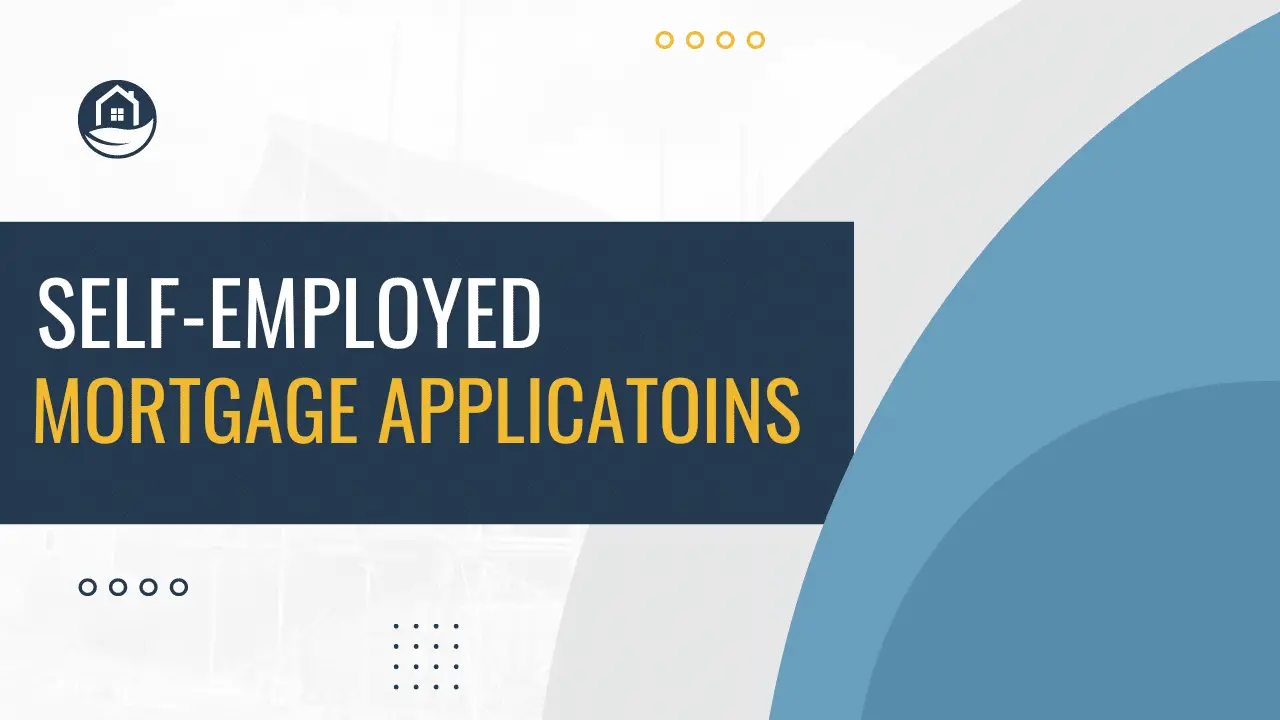When you start your business you will be faced with the dilemma of whether you should or shouldn’t voluntarily register for VAT. In this blog post, we will give you all the facts and questions you should be asking yourself when trying to make that decision.
What are the VAT registration Thresholds?
Just to be clear, you do not have to register to VAT until the Turnover of your business exceeds the following thresholds:
- Supply of Goods: €75,000
- Supply of Services: €37,500
- €41,000 for those making acquisitions from other EU stats
But even if your business is below these thresholds, you can still register for VAT on a voluntary basis. You will need to weigh up the pros and cons of VAT registration before jumping to any conclusions.
Reasons to voluntarily register for VAT when under the threshold?
The biggest advantage of voluntarily registering for VAT is the ability to claim VAT refunds on business purchases.
For example, let’s say you bought some stock from a supplier at a total cost of €184.50, which included €34.50 in VAT. If you were not registered for VAT your effective cost will be the full amount of €184.50.
However, if you are registered for VAT you will be able to claim back the €34.50 VAT in your next VAT3 return. The cash flow timings will work as follows:
At the time of purchase, you will pay the full €184.50 to your supplier (depending on the credit terms offered by the supplier), then once your next VAT3 is filed you will be refunded the €34.50 by the Revenue Commissioner.
Being registered for VAT will also add a lot of legitimacy to your business and help build trust with potential customers and suppliers who may view VAT registration as a sign of reliability and stability.
The downsides of being VAT registered
There are also downsides to registering for VAT, such as now having to charge VAT on all of your sales to Irish customers.
For example, you currently charge your customer a price of €100 for your product. After registering for VAT you must add 23% VAT which increases the price to €123 (if the product price were to remain the same). You will collect this €23 and then pass it on to the Revenue Commissioner in your next VAT 3 return.
The impact of this on your business will depend on who your customers are. If your customers are primarily individuals who are not registered for VAT, then they will not be able to claim back the VAT that you have added to the price of the product and will bear the brunt of the 23% price increase.
You may have to make the decision to reduce the product price overall so that not all of the price increase is passed on to customers, but this will impact the business’s profitability.
On the other hand, if your customers are primarily businesses that are also VAT registered then there will be no issues from their perspective, as the increase in price due to VAT of your product can be claimed back from the Revenue Commissioner.
Another potential downside is the additional admin and cost of preparing regular VAT returns and annual RTDs (Return of Trading Details). If you do not have the expertise in-house then this will need to be completed by a bookkeeper or accountant at additional cost to the business.
Cash Flow
When making your decision on whether to voluntarily register for VAT or not, another key consideration will be the impact on your business cash flows.
Startup businesses often have a considerable amount of upfront costs for business plans, legal costs, promotional costs and stock. To be able to claim back the VAT on these expenses could be a great boost to cash flows in the early days of the business.
Disclaimer: This blog post is for informational and educational purposes only and should not be construed as financial advice.






